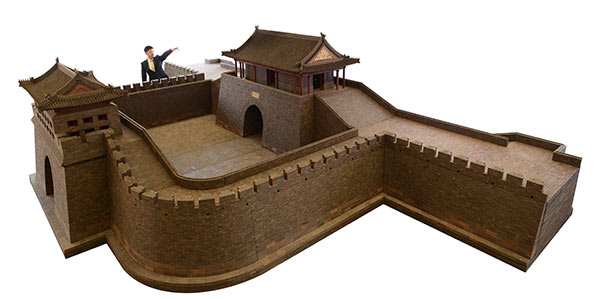

 |
|
The model of Guangqu Gate and its watchtower with a man standing next to it. |
Yan the historian reveals that the cost for just one watchtower runs up to 100 million yuan ($15.4 million).
"Even in miniature, the project required unimaginable financial wherewithal," he says. "And enormous time, too."
The building of the actual architecture started from 1403 and took 20 years, and Madam Chan's lasted six years, he compared.
"I've known Madame Chan for 20 years. She dedicates herself to the preservation of traditional Chinese culture. Some of the rich love to flaunt their wealth through vulgar means, but she uses hers for this purpose. That is a great virtue," Yan comments.
Liu Dake, the expert on architecture, considers this project Chan's "greatest legacy".
"More than her red sandalwood furniture and her real estate assets, this one will be associated with her because future generations will be able to get a sense of the greatness of this old city," he says. "If you build one gate, it's just a gate; but if you build 16, you'll have mapped out a whole city."
Chan is negotiating with the government to build another museum, to be located in Beijing's eastern suburb of Tongzhou, a facility where each watchtower could be brought to view in its own hall. "I envision the busy shopping street outside Zhengyang Gate or even boats in the moat and river system. I want everyone to be proud of the city of Beijing," she says.
Contact the writer at raymondzhou@chinadaily.com.cn